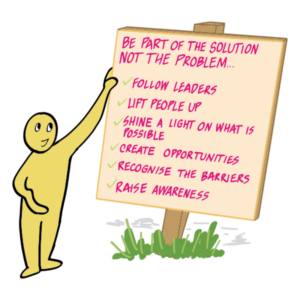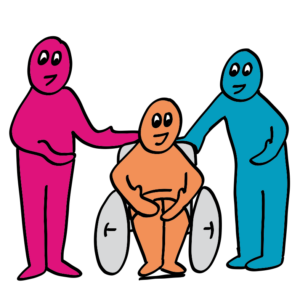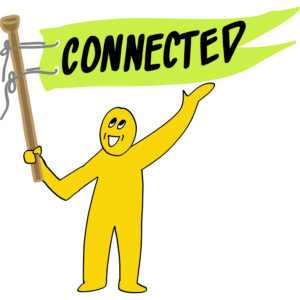Here at Community Catalysts, we understand the power of working in real partnership with people who have personal experience of and/or a vested interest in the outcome. We know that people really understand why things don’t work and they often have great ideas of how they could work better.

To be honest we are not keen on the language of coproduction – it seems really jargony and is not language that most people understand. But the language aside, we are very keen on the practice of working together to make things better.
We know there are so many ways to approach good coproduction and so many techniques and skills we can learn and develop that enable this to happen.
In this blog, Community Catalysts Anna Tuck (Cambridgeshire) and Joseph Young (Suffolk) feedback on their experiences of two new approaches of listening to, and working with, local people. Anna and Joseph have both implemented these new approaches in their respective areas as a basis to plan future services.
Cambridgeshire – Appreciative Enquiry
As part of a Cambridgeshire County Council offer through the Think Communities Team, Anna and a host of other community professionals including Council commissioners were invited to attend two-step training in Appreciative Enquiry.
What is Appreciative Enquiry?
The approach originated in Plymouth and developed as a way to do things differently. It is based on co-production not consultation, really understanding what people need and changing systems so that initiatives are driven by people and not targets. The key steps are – discover, dream, design and deliver.
Chuck in a stone and follow the ripples
Gary Wallace, Plymouth City Council
During the training, Anna partnered with a colleague to have an informal conversation, listen to each other’s responses and learning what was important to the other person.
When people show an interest in others they start to show interest in themselves and what matters.
Anna then went on to use these techniques with other people, visiting local warm hubs, having informal conversations with people about their lives and learning what matters most about life in their local area. The conversations were written up and shared to allow stories to translate into service approaches.
The practice of Appreciative Enquiry is intended to build understanding, trust and empathy because it’s done together.
Suffolk – People’s Assembly

People’s Assemblies are a structured way for people to discuss issues or make decisions collectively. They usually ask a specific question of a group of people, ideally related to a local issue. They work on the principle that people and communities know what is best for themselves and the structure of an Assembly allows that wisdom to emerge. There are three pillars that are essential to an Assembly:
- Radical inclusivity – where the emphasis on all being heard and valued equally means no voices dominate and the collective wisdom of the Assembly is harnessed.
- Active Listening – focusing on really hearing someone before developing your response. Assemblies are spaces which recognise that no one person or group holds all the answers, and that it is through the wisdom of the group that we gain powerful intelligence about the issues being discussed
- Trust – it is essential that all participants trust the process, the facilitators and the participants involved.
Diversity in opinion will pay you back in the long run socially… if we don’t fix this problem to start with we are simply going to replicate existing power structures.
Eleanor Saitta, hacker and designer
There are three stages:
- Input – someone with knowledge of the topic introduces it to offer context and introduce questions
- Deliberation – people work in small groups. Groups are facilitated to ensure everyone’s voices are heard equally
- Feedback – each group feeds back to the wider Assembly
Assemblies generate specific ideas or outputs and participants are then given the opportunity to be involved in making those positive changes happen.
People’s Assembly in Suffolk
In Suffolk, Joseph has been involved in an Assembly which brings together older and younger people. Where previously there had been mistrust, with some older people considering children and young people to be a nuisance and younger people feeling that they were not included in their community, the Assembly brought them together to hear each other and generate positive ideas.
This has resulted in lots of changes and intergenerational exchanges, including:
- local sports facilities opening their doors to children and young people
- older people teaching children traditional board and card games at a local youth club
- an allotment ‘work experience’ project
- young people leading on the redevelopment of a playground

Interested in learning more?
Contact Anna or Joseph to learn more about what Community Catalysts and local partners and citizens are doing in Cambridgeshire and Suffolk.
Or take a look at some of the other collaborative or co-production approaches or projects we are also involved with:
- Big Conversation – Helping organisations engage and consult with large numbers of people from different stakeholder groups and competing perspectives to coproduce action plans for change
- Equipment Matters – a partnership between community equipment provider Medequip and people who use equipment to help them live their lives their way
- Shared Perspectives – Helping organisations and citizens solve many different problems through exploring and learning, developing and shepherding a shared action plan and supporting local system and culture change
